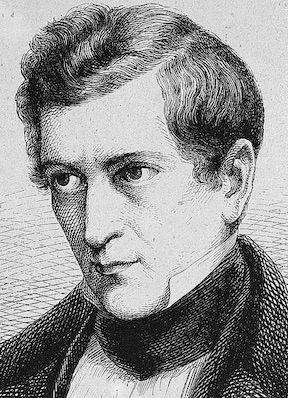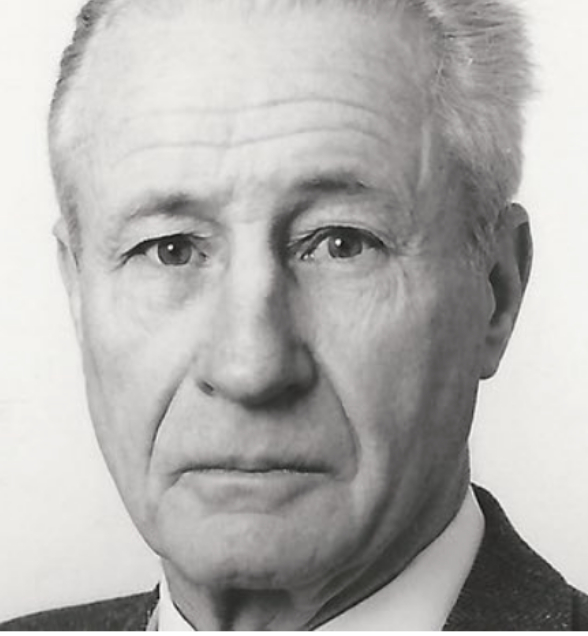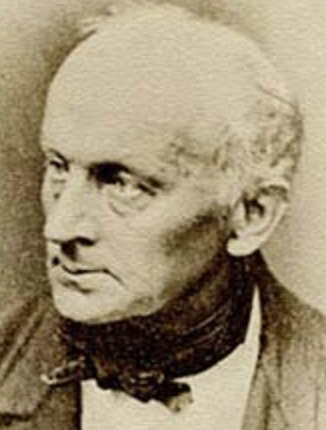bible-scholars
David Friedrich Strauss

On this date in 1808, theologian and author David Friedrich Strauss was born in Ludwigsburg, Germany, the son of a merchant. He pioneered scholarship questioning the historicity of Jesus. Strauss became a Lutheran vicar in 1830 and studied theology under Hegel. He was appointed to the Theological Seminary at the University at Tubingen. His two-volume work Das Leben Jesu kritisch bearbeitet (The Life of Jesus Critically Examined (1835) dissected the New Testament as largely mythical and was published to great acclaim but lost him his teaching post. The British freethinking novelist George Eliot translated its fourth edition in 1860 into English.
In 1836 he left the church. In 1841 he married mezzo-soprano opera singer Agnese Schebest. They divorced in 1846 after having two children. In his final book, The Old Faith and the New: A Confession (1872), Strauss eschewed Christianity and the concept of immortality to embrace materialist philosophy. (D. 1874)
G.A. Wells

On this date in 1926, George Albert (G.A.) Wells was born in England. Wells, a freethought bible scholar, was emeritus professor of German at Birkbeck College, University of London. As a student, Wells roomed with the family of a Swiss Protestant clergyman who had been a pupil of Albert Schweitzer (author of The Quest of the Historical Jesus). This experience introduced Wells to major German scholars and the subject of the historicity of Jesus.
Wells’ books include The Jesus of the Early Christians (1971), The Historical Evidence for Jesus (1988), Did Jesus Exist? (1975), J.M. Robertson (1856-1933), edited by G.A. Wells (1987), Belief and Make-Believe: Critical Reflections on the Sources of Credulity (1991), The Jesus Legend, co-written with R. Joseph Hoffman (1996), The Jesus Myth (1998), Can We Trust the New Testament? (2005) and Cutting Jesus Down to Size (2009).
Wells in his early writings maintained that Jesus never existed, either as a person or a divine. He later offered more nuanced assessments and accepted that there is some historical basis for Jesus’ existence, but insisted that the Jesus of late-first-century gospel stories is different from the sacrificial Christ myth of Paul’s epistles and other early Christian documents.
Wells had been chair of the British Rationalist Press Association. He died at age 90. (D. 2017)
“I say I have no religious beliefs. I certainly think this life is all I have, all anybody has, and I usually say it doesn’t seem to me at all meaningful to ask the purpose of life. What purpose does the life of a spider have? If a spider doesn’t have a purpose, why should we? Of course, we all have our individual purposes, that’s quite different.”
— "An Interview with Professor Wells," Freethought Today (April/May 1985)
Bruno Bauer

On this date in 1809, Bruno Bauer was born in Eisenberg, Thuringia, Germany. He studied at Friedrich Wilhelm University in Berlin, where he was strongly influenced by the rationalist philosophy of G.W.F. Hegel. After teaching theology in Berlin, he became a professor at the University of Bonn in 1839 but lost his chair in 1842 because of his rationalist views.
He later edited Hegel’s Lectures on the Philosophy of Religion (1818-32), a three-volume, critical edition which became one of Bauer’s best-known works. In 1840 he started a series of works arguing that Jesus was a fusion of Jewish, Greek and Roman theology. He concluded that early Christianity owed more to Greek Stoic philosophy than to Judaism. D. 1882.
“Everything that the historical Christ is, everything that is said of Him, everything that is known of Him, belongs to the world of imagination, that is, of the imagination of the Christian community, and therefore has nothing to do with any man who belongs to the real world.”
— Bauer, "Critique of the Evangelical History of the Synoptics" (1842)
